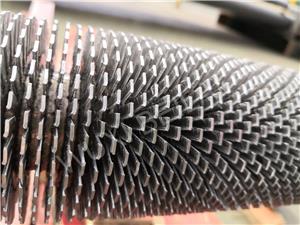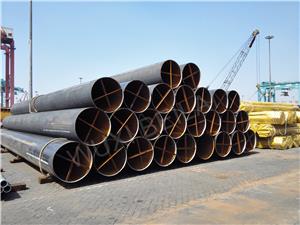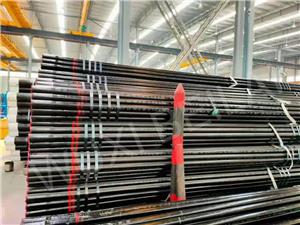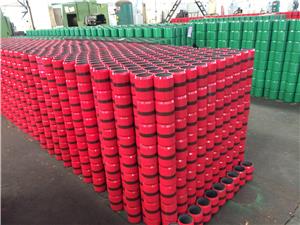The Versatility of Steel Pipes: Key Applications Across Industries
Steel pipes are essential components in numerous industries, known for their strength, durability, and adaptability. These cylindrical tubes, which come in various shapes such as round, square, and rectangular, are primarily made from steel alloys, offering versatile solutions in a wide array of applications. From the transportation of vital resources like water, oil, and gas to their structural use in construction and infrastructure, steel pipes play a pivotal role in modern industrial processes.
In this article, we explore the extensive applications of steel pipes across various sectors, underscoring their importance in maintaining global infrastructure and meeting the demands of evolving industries.
The Multi-Functional Role of Steel Pipes in Different Industries
Steel pipes are valued for their unique properties, such as strength, resistance to corrosion, and longevity, which make them indispensable in several fields. Here are some of the key areas where steel pipes play a critical role:
1. Strength and Durability
Steel pipes are renowned for their remarkable strength and ability to withstand heavy pressure. This durability makes them ideal for high-stress environments such as oil and gas pipelines, construction projects, and industrial applications.
2. Corrosion Resistance
One of the standout features of steel pipes is their ability to resist corrosion. Steel pipes can be galvanized or coated to enhance their corrosion resistance, making them suitable for challenging environments where exposure to corrosive substances is common, such as in the oil and gas industry or water treatment facilities.
3. Fluid and Gas Transportation
Steel pipes are heavily relied upon for transporting fluids and gases across various distances. Their smooth interior surfaces minimize friction, ensuring the efficient flow of substances like water, oil, natural gas, and chemicals. This makes them ideal for large-scale pipelines that span continents.
4.Construction and Infrastructure
In the construction industry, steel pipes serve a vital structural role. They are used in building foundations, support systems, and as integral components of bridges, tunnels, and other critical infrastructure. Their resilience and flexibility make them invaluable for ensuring structural integrity in both residential and commercial construction.
5. Water and Sewage Systems
Steel pipes are extensively used in water supply and sewage systems due to their corrosion resistance and high-pressure tolerance. They ensure the reliable delivery of clean water and the safe removal of wastewater, both of which are crucial for maintaining public health and sanitation.
6. Industrial Manufacturing
Steel pipes are essential in the manufacturing process, where they are used to transport fluids, gases, and raw materials. Industries such as automotive, aerospace, and heavy machinery rely on steel pipes to ensure smooth, uninterrupted operations.
7. Energy Sector
In the energy sector, steel pipes are integral to the transmission and distribution of electricity, steam, and other resources. They are used in power plants, nuclear facilities, and renewable energy projects, helping to channel energy where it is needed most.
8. Emerging Industries
As industries evolve, steel pipes continue to find new applications in emerging sectors, such as renewable energy, 3D printing, and advanced transportation. Their flexibility allows them to adapt to these innovations, proving their ongoing versatility.
Key Properties and Composition of Steel Pipes
Understanding the composition of steel pipes is crucial to appreciating their wide range of applications. Steel pipes are primarily composed of iron and carbon, with various alloying elements added to enhance their specific properties.
Strength and Durability: Steel pipes are strong and resistant to structural failure, capable of withstanding extreme pressures and harsh environmental conditions.
Corrosion Resistance: Many steel pipes are coated or treated to resist corrosion, which is essential for long-term performance in industries exposed to corrosive substances.
Heat Resistance: Steel pipes exhibit excellent heat resistance, making them suitable for applications involving high temperatures.
Longevity: Steel pipes are designed for longevity, ensuring that they can endure for years, reducing the need for frequent replacements.
Advantages and Applications of Different Types of Steel Pipes
Each type of steel pipe offers distinct advantages depending on the application:Seamless Pipes
Manufactured from a solid cylindrical billet, seamless pipes are free from seams or welds, offering superior strength and reliability. They are commonly used in high-pressure applications such as oil and gas pipelines.
Advantages: Seamless pipes are stronger and more reliable because they lack welded seams, making them ideal for high-pressure, high-temperature applications.
Applications: Used extensively in the oil and gas industry, petrochemical plants, and power generation facilities where the reliability of the pipes is paramount.
1. Welded Pipes
Welded pipes are created by joining steel plates or coils through welding. While they may not offer the same strength as seamless pipes, welded pipes are cost-effective and suitable for less demanding applications such as water supply systems and structural uses.
Advantages: Welded pipes are more affordable and can be manufactured in a variety of sizes and thicknesses.
Applications: Common in the construction industry, municipal water systems, and mechanical applications, where strength requirements are less stringent than in high-pressure environments.
2. Galvanized Pipes
Galvanized pipes are commonly used in plumbing systems and outdoor structures, providing a durable and cost-effective solution for areas exposed to harsh weather conditions.
Advantages: The zinc coating provides excellent resistance to corrosion, making them ideal for applications exposed to moisture and environmental elements.
Applications: Widely used in residential plumbing, irrigation systems, and outdoor infrastructure like fences, railings, and structural supports.
Steel Pipes in Industrial Applications
Steel pipes are indispensable in many industrial sectors, where their unique properties enable the efficient transport of vital materials:
Oil and Gas Industry: Steel pipes form the backbone of oil and gas pipelines, allowing the safe transport of raw materials from exploration sites to refineries and distribution networks.
Construction: Steel pipes provide structural strength to buildings, bridges, and tunnels, ensuring stability in large-scale infrastructure projects.
Water and Sewage: Steel pipes play a critical role in maintaining public health and sanitation by reliably transporting clean water and safely removing waste.
Energy: Steel pipes are used in power plants, nuclear facilities, and renewable energy projects to facilitate the transfer of electricity, steam, and other resources.
Manufacturing: Steel pipes are crucial in industries such as automotive and aerospace, where they move fluids, gases, and raw materials within production lines.
Steel pipes are an essential part of many industries due to their strength, durability, and versatility. From energy production to water distribution, they are vital in ensuring the smooth operation of key infrastructure and manufacturing processes. Their adaptability, resistance to corrosion, and longevity make them invaluable in industries ranging from oil and gas to construction, water systems, and beyond. As technologies continue to advance, steel pipes will remain a cornerstone of modern industrial applications, meeting the growing demands of emerging sectors and helping shape the future of global infrastructure.




